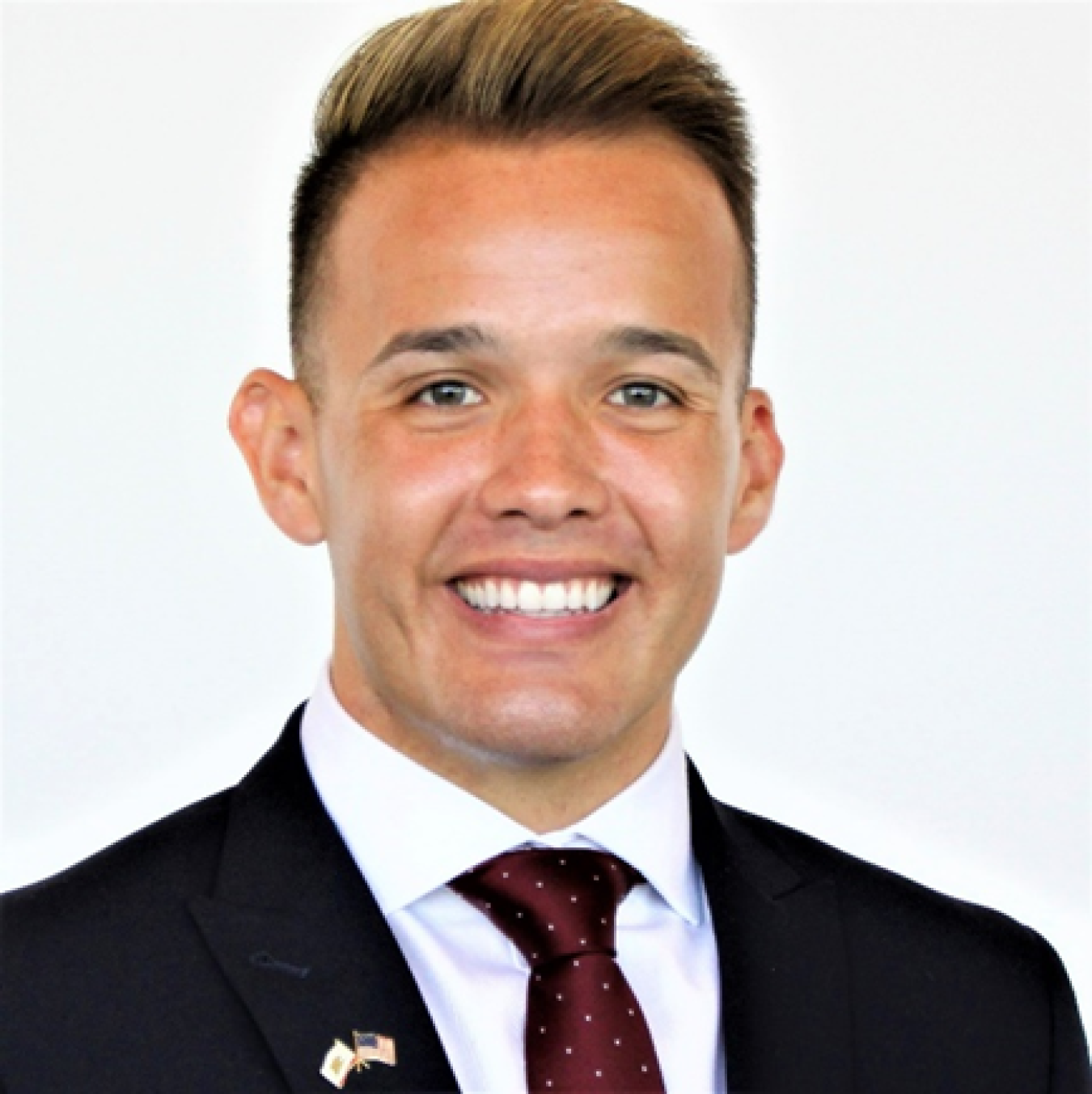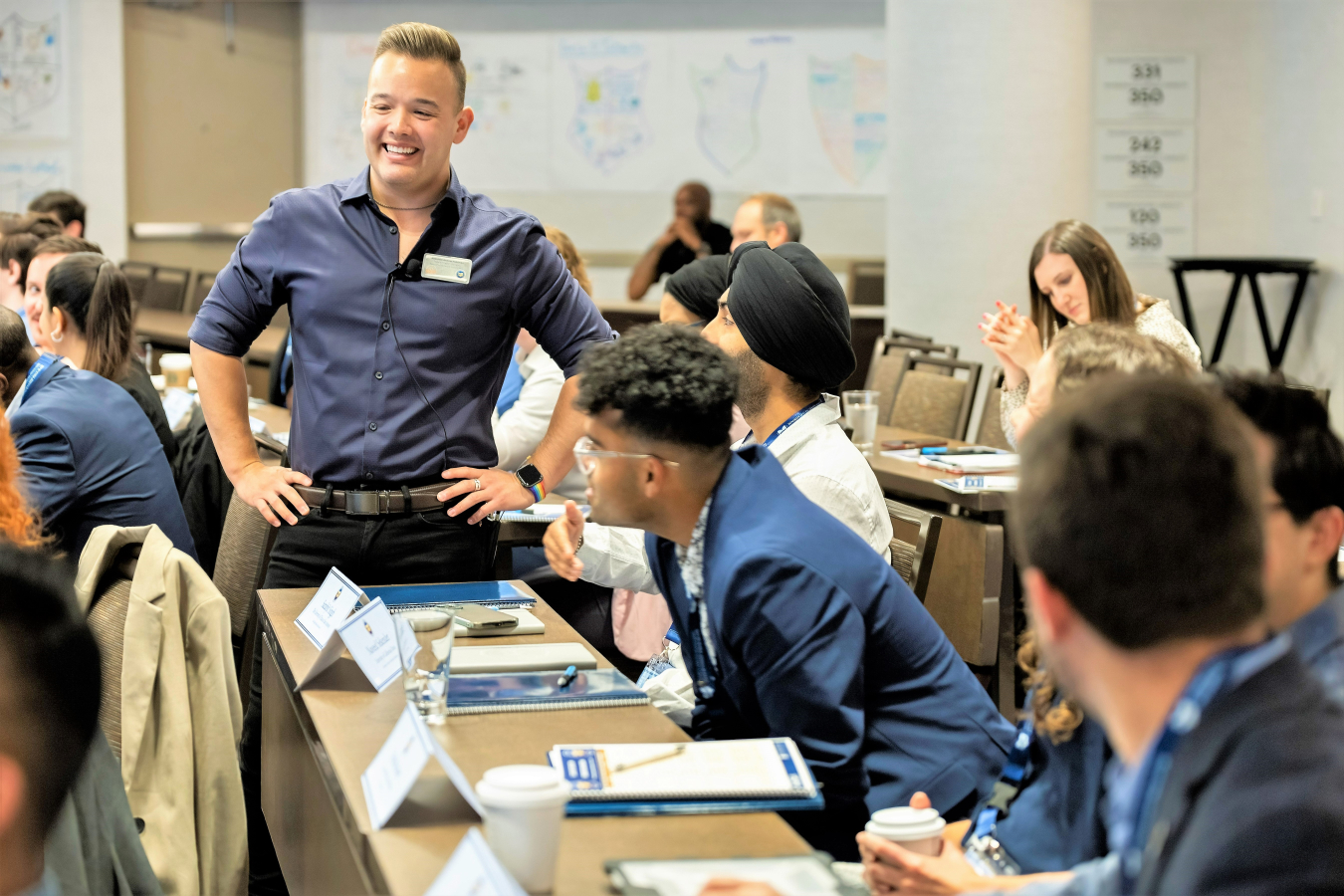Meet Alexander Godinez-Robinson, making a positive impact on interns, fellows, and students across the nation through NNSA’s Graduate Fellowship Program and Minority Serving Institutions Internship Program.
National Nuclear Security Administration
June 27, 2023
How do you support NNSA?
I am the Federal Program Manager for the NNSA Graduate Fellowship Program and Minority Serving Institutions Internship Program, where I oversee and manage 60 fellows and 100 interns placed at NNSA Headquarters, labs, plants, and site offices across the country.
What’s the best part about your job?
The best part of my job is getting to work with the interns and fellows I oversee for my programs. Getting to guide them through their internship and fellowship experiences is extremely rewarding, and I truly feel like I am making a positive impact on their lives, and positively impacting the nuclear security enterprise, because I focus on recruiting a diverse group to reflect the diversity of the nation, at NNSA.
What is your proudest accomplishment while working at NNSA?
My proudest accomplishment while working at the NNSA was being asked to build an internship program for the agency. In October 2021, I designed and implemented the Minority Serving Institutions Internship Program (MSIIP). The first cohort began in June 2022 with 87 interns, and our second cohort began this June, with 96 interns, all supporting the NNSA, and our lab/plant/site partners. I am very proud to see the agency focusing on recruiting and developing a diverse and talented group of young people; providing paid opportunities they may not have had otherwise.

What was your background and how did that lead you to a career in nuclear security?
I obtained my Bachelor of Arts in Political Science from the University of California, Santa Barbara, a Master of Arts in Security and Terrorism from the University of Kent in Canterbury, England, and a Master of Science in International Public Policy from the University College London. While I was figuring out what I wanted to do after completing my education, I worked in various jobs with nonprofits, in education, leadership development, and in state government in California.
What led me to my career path in nuclear security was the NNSA Graduate Fellowship Program. I was selected go complete my fellowship with the NNSA Office of Material Management and Minimization from June 2019-June 2020. After completing my fellowship, I was hired full-time with the NNSA Office of Management and Budget, Learning and Career Management.
Being part of the LGBTQ+ community doesn’t define who I am and what I am capable of, but it is a part of me and makes me stronger. I hope I can be a positive example for others.
Tell us a little about finding your identity as a member of the LGBTQ+ community. How do you feel your experience has changed with time?
I began to identify with the LGBTQ+ community in college, maybe high school (but didn’t quite understand it until college). It was a challenging time because I wasn’t sure how my friends and family would react. I started to feel like I was always hiding something from everyone, being careful to not be too specific about who I liked or was hanging out with, it felt like I was lying to everyone, becoming defensive if someone questioned my sexuality.
After college, when I went abroad to get my masters’, I was in a new place where no one knew me, and I felt like I could explore my feelings and discover who I was without any shame, judgement, or fear that someone I knew might see me out on a date. When I came back home, I finally felt free and sense of self, belonging, and acceptance of who I am. I could share with my family and friends, and thankfully, had a positive experience when I came out to them. I know others, including some close friends, did not have the experience I had, and have continued to struggle, and some who are still not out or fully able to accept themselves.
Getting to know people in the LGBTQ+ community helped me feel safe, and I hope I can be that person for others who are still struggling. This truly is a community, and we are all here for each other. I now feel truly myself and am confident in my abilities. Being part of the LGBTQ+ community doesn’t define who I am and what I am capable of, but it is a part of me and makes me stronger. I hope I can be a positive example for others.
Why do you think diversity and inclusion are important in the workplace?
Diversity and inclusion are important in the workplace because it allows for a workforce that reflects the population of the nation. When people from all backgrounds are represented, they have more trust in those making decisions because they can see themselves in those places. Hopefully, this eliciting a deeper sense of trust in an organization. This will also enhance the workplace by enabling diverse and innovative thought, stemming from both different and shared experiences that can positively change and influence the mission of an organization.
Tell us something interesting about yourself; what do you like to do for fun or in your downtime?
In my downtime, I like to watch action/drama/comedy tv shows or movies. I also like to read and travel. My favorite places to travel are anywhere with a beach. I also love to play tennis (the only sport I am good at) and have been playing since college. Lastly, while my work at NNSA is important, my favorite activity is working with high school students on leadership development. I work with roughly 300 high school students every summer to develop their skills and provide them training they need to be effective and impactful leaders on their campuses.

